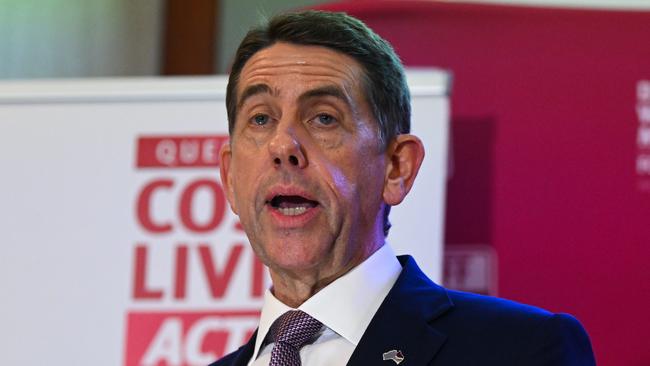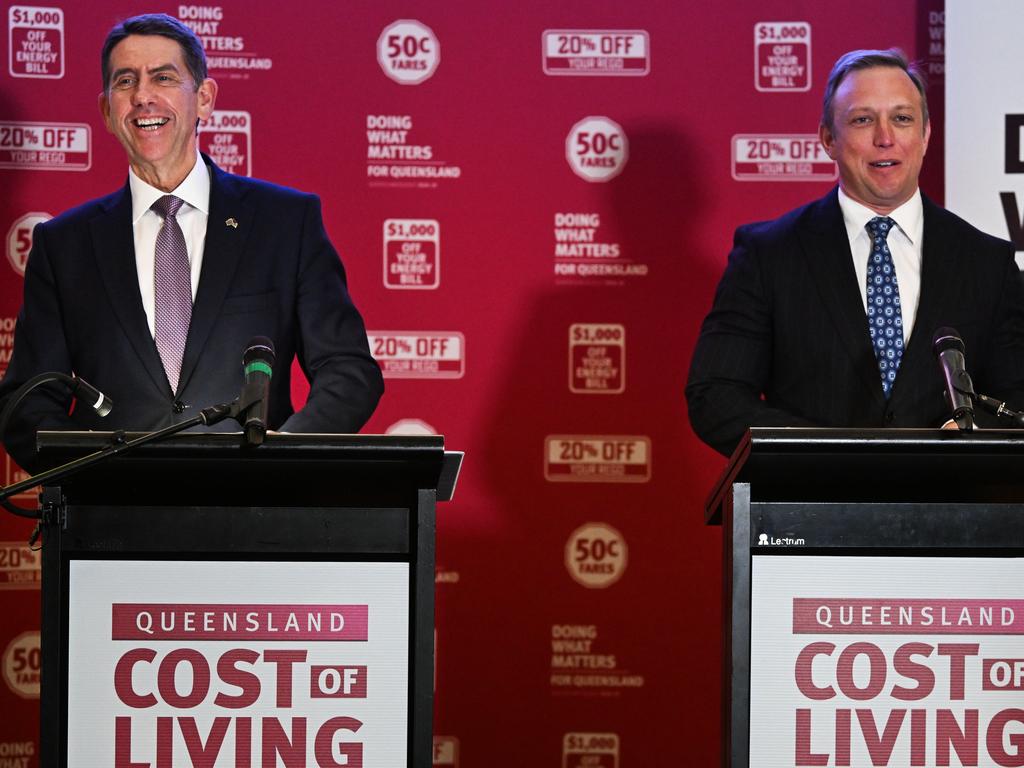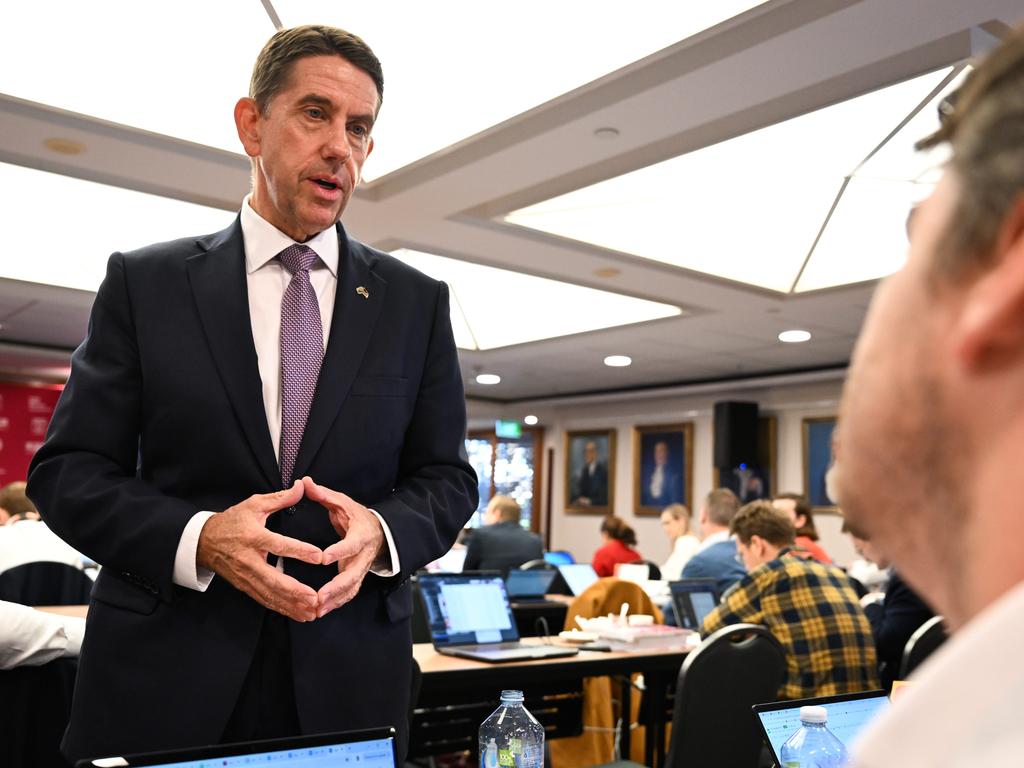
More than $3.5bn in electricity rebates, 50c fares on public transport, discounted car registrations and kids’ sports vouchers all kick in just before the October 26 election and fade away in the months after the poll.
Dick, slick and nimble as ever on his feet, framed his latest budget as squarely aimed at helping struggling Queenslanders with cost-of-living relief, even if it means going into deficit and further debt at a time when coal royalties are pumping the state’s revenue streams to record highs.
But the short-life of the measures, and the fact he held off delivering them until now – despite inflation taking off in 2022 – undercuts the Treasurer’s denial that this budget is all about winning back voters.
Tuesday’s budget was the government’s last set play before the campaign, with the billion-dollar sweeteners and political framing brazen even by Queensland standards.
Dick opened the budget sell by declaring it was being delivered by “a new government with a new approach”.
Forget that he sat around the cabinet table with Premier Steven Miles and former premier Annastacia Palaszczuk over three terms, and that the only change in the government was in the leadership.
The looming election, Dick said, should not be a “referendum on the past nine years” but about the “competing visions for our state”.
It’s wishful thinking.
Dick and Miles know it is the government’s record that has largely driven voters to the opposition and its small target strategist, leader David Crisafulli.
It’s what led the unions and caucus to turn on Palaszczuk, pressuring her to quit last December as polling showed her personal popularity – which helped deliver Labor three election wins on the trot – tanking.
And both Miles and Dick seem intent on not only keeping voters from looking at the government record, but scrubbing any connection to the former premier.
Ever since the leadership change, the pair have been at pains to distance themselves from Palaszczuk.
Her name is rarely uttered publicly by Dick or Miles, who is still touted as the “new” premier in media releases and ads six months after taking the top job.
Even at the budget, Miles had a veiled little dig at Palaszczuk when spruiking the boost to health funding, saying he and Dick (both previous health ministers) could “only wish to get 11 per cent” increases when they held the portfolio.
With successive polling indicating a defeat for Miles in October, and the government losing a seat in a by-election this year in the Labor heartland, the budget handouts are probably too late.
But Dick is right in that elections should be a contest of ideas.
Last week, Crisafulli committed to adopting Labor’s budget sight unseen.
It was a lazy and risk-averse pledge from a leader wanting to fall over the line with Labor’s failings rather than winning over voters with a plan of his own.
It’s the same strategy that first won power for Palaszczuk against the unpopular Campbell Newman.
But it led to an average government with no real mandate.







If there is any doubt Cameron Dick’s fifth budget is about holding onto power just look at the expiry date in the handouts to voters.